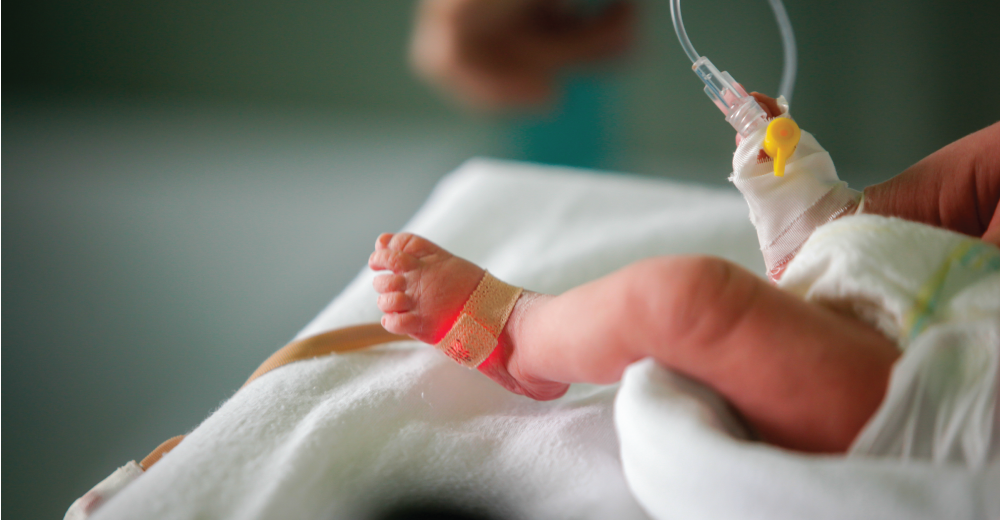Premature babies are babies that are born earlier than 37 weeks of gestation. After days, weeks or even months of waiting parents will be thrilled to learn that their baby is now fit to go home. However, as the day to bring your baby home is getting closer, you might feel worried and anxious to care for your baby outside the safety of the hospital. Do not worry as doctors will not allow your baby to go home if they are not fit. Healthcare professionals will also make sure you spend some time with the baby in the hospital learning how to take care of your baby to ease the transition from Neonatal Intensive Care Unit (NICU) to home care.
Taking care of a premature baby is different from taking care of a normal full-term baby. You will need to make some changes. Follow the tips below to help you be more prepared to bring your bundle of joy home.
Feeding
Breastfeeding is the ideal choice of feeding for babies. Breastmilk is easier for premature babies to digest and it can also protect them from infections of the gut. If there’s a need to use infant formula, you should consult the paediatrician regarding the types of formula milk as well as the correct teat/bottle nipple for premature babies.
The next question that parents would want to know is when can their baby start weaning. There’s no specific age to start weaning as the basic principles of starting weaning in full-term babies do not apply to premature babies. Generally, they can start weaning at 5 to 8 months of age from their actual birth date. So for more mature babies, it can be started around 5 months and for less mature babies it can be started nearer to 8 months. However, most importantly is to look for signs and cues that your baby is ready for weaning:
- baby can be put in a sitting position with support
- baby able to hold their head in a stable position
- baby is alert and ready to try new types of feeding
- shows interest when surrounding people are eating
- has been feeding well on breast or bottle
- able to bring hands to their mouth and put things into the mouth
- make ‘munching’ movements when things are put into their mouth
Sleeping
Keep your baby in a comfortable temperature environment. You can layer the clothes on the baby with a vest, sleeping romper and a sleeping blanket. You can add or remove the clothing depending on how warm or cold the room is. Premature babies also have lighter sleep compared to full-term babies. This means that they will experience sleep difficulties like restlessness and breathing difficulties such as pauses in their sleep (apnea). You can try to stroke the babies when this happens. However, if this happens frequently and the episodes occur for a prolonged period please seek medical attention as soon as possible. Once the baby gets more mature, their sleeping pattern will be similar to a full-term baby.
Safe sleeping
Premature babies are at a higher risk of Sudden Infant Death Syndrome (SIDs). SIDs is the sudden unexpected death of healthy babies. It usually happens in the first 6 months of life. We do not know the exact cause of SIDs but there are ways to reduce them.
- babies should sleep on their backs. If there is a need for tummy time, it has to be supervised
- sleep in the same room but not the same bed
- never fall asleep on the same bed or sofa as the baby especially when you are tired
- keep bedding away from the face of a baby and make sure it’s tucked in firmly
- make sure no one smokes at home
Bathing
For the first few months of life using plain water and maybe gentle baby soap to bathe the baby is good enough. When your baby’s skin is damp, they will feel cold easily. Always make sure to bathe your baby in a warm place and remember to have a towel available nearby so that you can dry them immediately after a bath. You can use a gentle moisturiser after a bath. Make sure you stay away from products that have fragrances.
Outdoor visits
It is advisable not to bring your baby out other than health visits. Premature babies have lower immunity levels and thus they are at high risk of getting infections especially viral infections. Various viruses can infect premature babies but they are more vulnerable to the respiratory syncytial virus (RSV). RSV is a common viral infection among children which presents like the flu. It usually does not cause many problems to older children and adults but it can be severe and even cause death in premature babies.
Restrict visitors
Friends and relatives are definitely excited to hear that your baby is finally home. You might want to limit the number of visitors initially as you do not want infections to be passed to your baby. You need to ensure that visitors wash their hands before touching your baby. Visitors who are not well should refrain from visiting your baby. You can nicely explain to the visitors the reasons for doing so. Lastly, make sure no one smokes in your house. Premature babies have immature lungs and we surely would not want them inhaling the smoke and affecting the growth of the lungs.
Follow up appointments
Upon discharge from the hospital, there will be appointments to the hospital to assess the growth and development of the baby and assessment of the eyes and hearing. If your baby has more complications during the stay in NICU you might have multiple follow-ups scheduled at different times. If you find it difficult to attend so many appointments, please discuss with your doctor to rearrange and if possible to have more than one appointment in a day.
Vaccinations
Premature babies should follow the recommended immunisation schedule. Some of the vaccinations might be delayed especially when the baby was nursed in NICU but subsequently, all immunisations should be followed like what a full-term baby should get. Premature babies are more likely to experience more severe manifestations from vaccine-preventable diseases. Thus it is important that all vaccination schedules are strictly followed.
Self Care
Taking care of premature babies can be stressful and it takes a lot of time in caring for the premature baby especially the first few months at home. You will be experiencing a wide range of emotions and it can be a stressful period for parents. Get help from relatives or friends to help take care of your baby while you get some rest. Make sure to eat well, rest well and exercise regularly. Whenever you feel overwhelmed, don’t hesitate to seek professional help.
It might look like there are so many things to be concerned about when you are bringing your premature baby home. Hospital doctors and nurses will surely be able to assist you in making the transition from NICU life to home easier. As the days go by, you will be more confident in taking care of your baby and your baby will be able to communicate their needs better with you.

Consultant Paediatrician & Neonatologist,
Pantai Hospital Ayer Keroh


